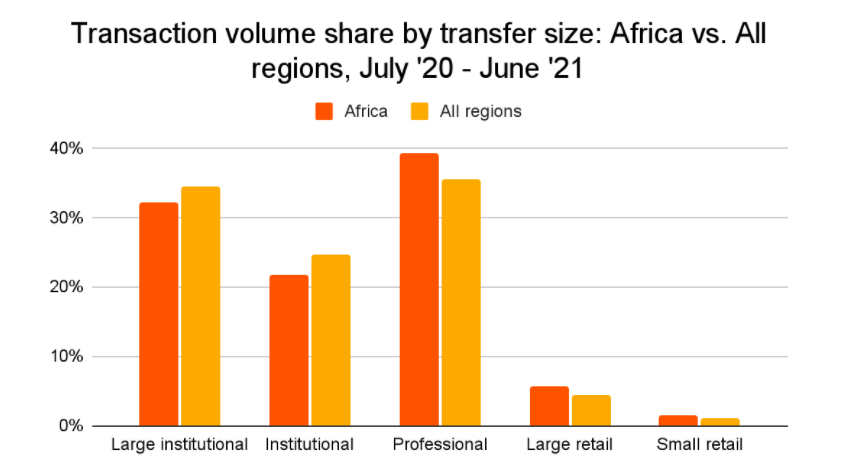In this week’s news roundup, we will cover the rapidly growing crypto market in Africa, Paxful adding Lightning support, and other top stories.
Crypto Market in Africa Grows by Over 1200%
According to a report preview by Chainalysis, the crypto market in Africa has grown more than “1,200% by value received in the last year.” Additionally, the continent “has some of the highest grassroots adoption in the world.”
Chainalysis also noted that Africa’s cryptocurrency economy is the smallest but the most dynamic and exciting.

“In addition to being the third-fastest growing cryptocurrency economy, Africa also has a bigger share of its overall transaction volume made up of retail-sized transfers than any other region at just over 7 per cent, versus the global average of 5.5 per cent,” Chainalysis wrote.
Africans are also the biggest users of P2P platforms.
About 47 Per Cent of South African Adults Hold Crypto
Market research and data specialist company KLA has found that about 47 per cent of South African adults hold cryptocurrencies. However, the highest number of this population holds low-value crypto investments.
“While this percentage is high, the amount invested is low. This indicates that the bulk of South African crypto investors are experimenting and dabbling without making a significant financial investment,” said Tessa Nowosenetz from KLA.
KLA’s study discovered that 25 per cent of those interviewed hold crypto worth between $7 and $70. On the other hand, thirteen per cent of the respondents hold cryptocurrencies worth between $7 and $700. The KLA study also found out that 43 per cent of the respondents are mainly interested in making quick gains.
Paxful Integrates Lightning

Paxful has announced that it has integrated the Lightning Network on its platform to provide faster and cheaper transactions. The initiative is in partnership with Lightning Labs.
“The Lightning Network is the cheapest option for Bitcoin micropayments, which will massively amplify Paxful’s work around leveraging how Bitcoin can be used as a means of exchange rather than a speculative asset. Lightning is capable of handling 5 to 10 transactions per second but it has the potential to process hundreds of thousands of transactions per second,” said Paxful CEO Ray Youssef.
According to Youssef, the Lightning Network will accelerate adoption because it will make bitcoin “a strong financial contender for everyday transactions.”
Zimbabwe’s Minister of Finance Shops for Crypto Solutions in Dubai
Recently, the Minister of Finance in Zimbabwe, Mthuli Ncube, visited the DMCC Crypto Centre in Dubai where he identified solutions for cheaper remittances.
“I visited the DMCC Crypto Centre in Dubai, which is a fascinating incubation hub for cryptocurrency and payment solutions. [I] came across solutions that could lower charges for diaspora remittances,” he tweeted.
While it is not clear whether the country will follow up this visit with a partnership, Ncube’s openness to crypto is seen as a good sign. However, payment platforms in Zimbabwe are at a loss why the Minister had to seek solutions in Dubai. For instance, Uhuru Wallet is a blockchain-based platform that facilitates remittances in the country.
To learn more about Bitcoin, download the Bitcoin Beginner’s Handbook for free.


 Features3 years ago
Features3 years ago
 Bitcoin2 years ago
Bitcoin2 years ago
 Features3 years ago
Features3 years ago
 Features3 years ago
Features3 years ago
 Features3 years ago
Features3 years ago
 Features3 years ago
Features3 years ago
 Features8 months ago
Features8 months ago
 Bitcoin10 months ago
Bitcoin10 months ago






















 Central African Republic (CAR) has set up a 15-member committee that will be responsible for developing a bill on the use of cryptocurrencies and tokenization in the region.
Central African Republic (CAR) has set up a 15-member committee that will be responsible for developing a bill on the use of cryptocurrencies and tokenization in the region.